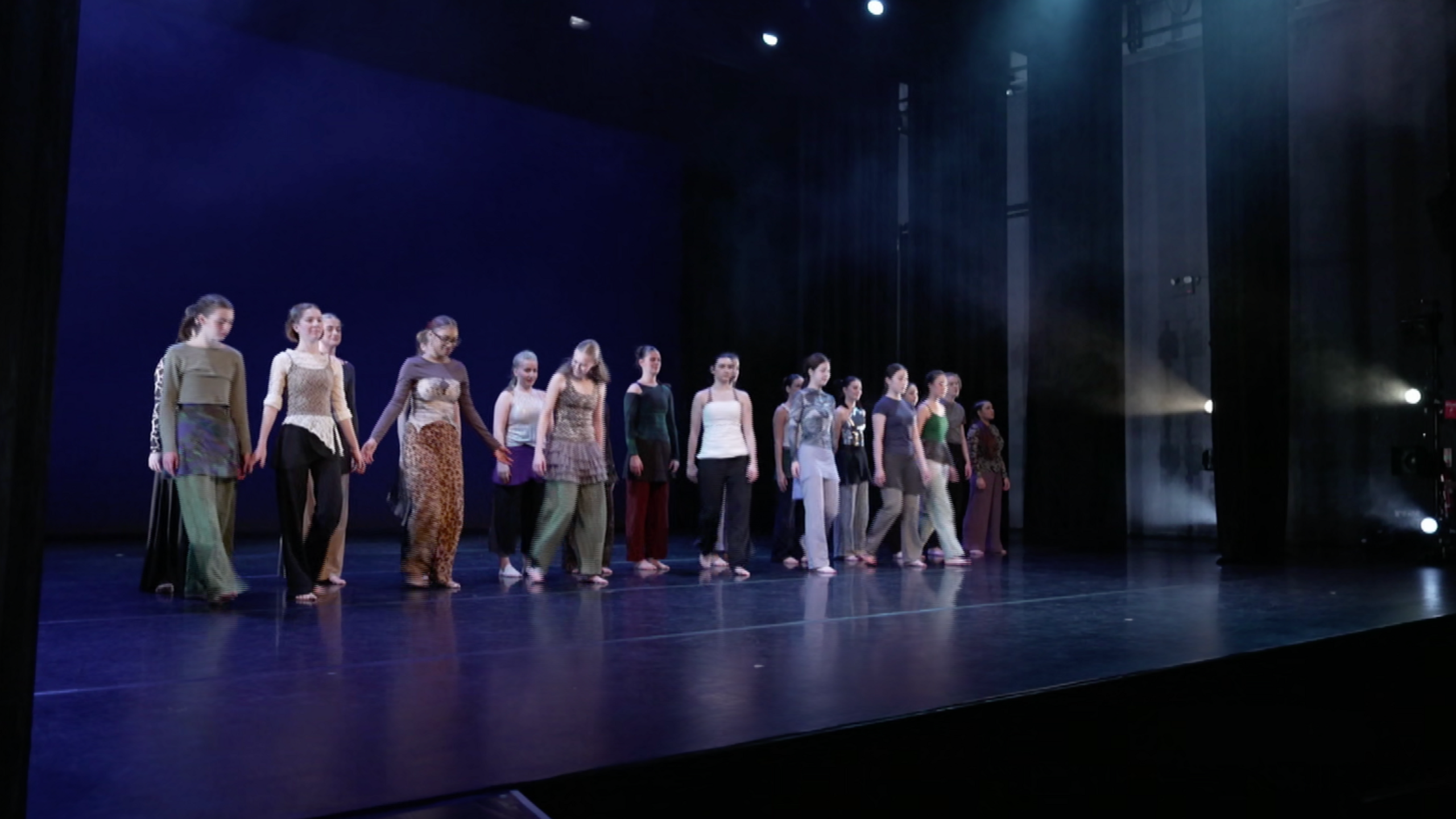'I won't be able to finish my degree if international fees go up'

Manou, 20, says she would have to go back home if the 6% levy was passed on to her
- Published
"When I came to London I felt at ease. This was my place," says 20-year-old Manou, who moved from Belgium to study at Trinity Laban Conservatoire of Music and Dance in south-east London three years ago.
But the contemporary dance student says she won't be able to complete her degree if the costs of a proposed 6% levy on overseas student tuition fees are passed to her.
The government plans to introduce the new tax to help pay for means-tested maintenance grants for domestic students, which it said would help break down barriers.
The Institute for Fiscal Studies estimates the levy could raise close to £600m per year, external but warns the government should be clear on its reasoning as it would "constitute a tax on the UK's exports". Further details are expected in the Autumn Budget.
"I would have to go back home. It would make me sad... it's my dream job," says Manou.
"As international students we don't get student finance so it needs to come out of our parents' pockets.
"My mum is working two or three jobs at the minute, and my dad is working two."

Students' union president Amadea Topalli says the levy could be the "tipping point" for students at Trinity Laban
Manou adds that having international students helps boost connections for future careers in the arts.
A thought echoed by students' union president Amadea Topalli, who says international students are already finding the fees high enough already.
"Having that extra financial barrier might be the tipping point for them to not continue their studies or even come to Trinity Laban in the first place," she says.
"International students offer a broad range of culture, and different insights from around the world."

One in four students at Trinity Laban are international
The proposals have also raised concerns among some university leaders worried about predicted financial losses.
Trinity Laban says one in four of its students are international.
Its principal, Professor Anthony Bowne, estimates the levy will cost the conservatoire £500,000 a year if it goes ahead.
"It's death by a thousand cuts. We'll have to find ways to save it and we don't want to affect the student experience."
According to the House of Commons library, there were 428,200 international students in the UK from 2023 to 2024.
Some 208,000 international students are educated in London, , externalcontributing £12.6bn pounds to the city's economy.
Everything you need to know about the Budget
- Published3 hours ago
The proposed levy would cost London universities up to an estimated £220m, according to London Higher, which represents universities and higher education institutions across the capital.
"You put at risk the international multicultural environment that we have here," says Dr Richard Boffey, from the organisation.
"That's such a unique selling point. It makes for such a strong student experience and for London and its businesses, what they need is international talent and the skills those students bring.
"We're risking the ability of those businesses to grow and remain internationally competitive."
The Department for Education (DfE) said it had taken "tough decisions" to put universities on a "firmer financial footing" and had refocused the Office for Students to monitor the financial health of the sector.
Get in touch
Have you been affected by issues covered in this story? Share your experiences.
Listen to the best of BBC Radio London on Sounds and follow BBC London on Facebook, external, X, external and Instagram, external. Send your story ideas to hello.bbclondon@bbc.co.uk, external
Related topics
- Published17 November

- Published2 days ago

- Published3 days ago
